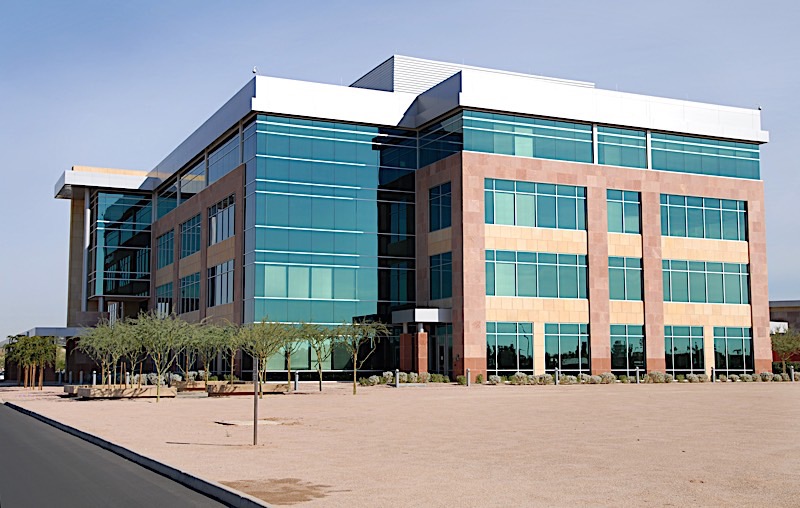Are You Interested In Bank-Owned Commercial Properties?
By Than Merrill
Distressed commercial properties represent a huge opportunity for entrepreneurs willing and able to invest in them. Distressed commercial properties offer the same attractive spreads as their single-family counterparts, only on a greater scale. That said, profits on a larger scale aren’t without a few caveats of their own. In order to take advantage of bank-owned commercial properties for sale, you will need to know how to navigate their waters. Only once you understand exactly what you are getting into and how to proceed can I recommend moving forward with the purchase of your own distressed commercial properties.
Bank-Owned Commercial Properties For Sale
Not unlike single-family homes, it is entirely possible for commercial properties to be distressed. In other words, bank-owned commercial properties for sale are also the result of a previous owner’s failure to keep up with mortgage obligations.
It is worth noting, however, that banks are not fond of the idea of holding repossessed commercial properties; if anything, they would rather sell them to avoid taking on additional holding costs. It makes more sense for banks to sell a property at a discount than to hold onto it, which spells great news for investors that know how to find distressed commercial properties. The willingness of banks to part ways with commercial properties at a discount could represent a huge opportunity for investors that know how to navigate the process.
[ Want to create a roadmap to a financially secure retirement? Register for a FREE real estate class to learn the powerful wealth building strategies real estate investing has to offer. ]

What Is A Distressed Commercial Property Vs A Bank-Owned Commercial property?
As I already alluded to, distressed commercial properties are typically facing some sort of financial pressure. More often than not, they are the direct result of owners neglecting to keep up with the mortgage obligations set forth by the original loan. Therefore, when a commercial property owner fails to pay their mortgage on time they are labeled distressed, and at risk of losing the property to foreclosure. Therein lies the biggest differentiator between distressed commercial properties and those that are bank-owned: distressed commercial property is at risk of being repossessed by the original lender, whereas bank-owned commercial property has already been taken back by the bank.
Each situation is rooted in the owner’s inability to pay down their principal, with the only difference being that bank-owned properties are farther along in the process. While distressed properties have yet to be seized by the bank, bank-owned homes have already gone through a process that places them “on the books” of lenders. More specifically, bank-owned commercial properties have been repossessed by the bank and failed to sell at a subsequent auction. You see, most banks will attempt to sell the repossessed property at auction to recoup any losses they may have sustained from the default, but commercial properties don’t always sell at auction. For whatever reason, many repossessed commercial properties don’t sell at auction, only to become bank-owned — that’s where investors come in.
Finding A Distressed Commercial Property
If you know how to find distressed commercial properties, you are already ahead of the game. However, not everyone may be so lucky. Here’s a list of my favorite ways to find bank-owned commercial properties:
- Commercial Investing Websites: There are a number of sites dedicated to identifying commercial real estate properties for sale, both distressed and non-distressed. Most commercial investing websites will allow visitors to filter their searches with a number of criteria, not the least of which include distressed labels. That said, it’s entirely possible to find a distressed commercial property by taking a few minutes out of your day and visiting a popular site like LoopNet, a marketplace where many people go to start their own commercial property search.
- Brokers: There’s no reason you couldn’t start looking for a distressed commercial property with a professional broker. As a professional who is licensed to buy, sell and lease properties for business purposes, it’s entirely possible that the right broker may know of some attractive properties in some stage of distress. It is their job to know what’s going on in their neighborhood, and it’s reasonable to assume they’ll know more about the distressed properties in a given area than anyone else. At least one thing is for certain: you’ll never know until you ask.
- Lenders: Lenders aren’t typically fond of the idea of holding on to non-performing assets, but that’s not to say they are never forced to. When a bank repossesses a property, they usually try to sell it at auction to recoup any losses from the delinquent mortgage payments. If the property doesn’t sell at auction, however, there’s a good chance the bank will take every opportunity to remove the property from their books. Savvy investors could very easily find themselves with a deal if their negotiation skills are on par with the respective bank. At the right price, it’s entirely possible to buy properties banks have repossessed; they would rather sell them than hold onto them.
- Networking: Running a successful investing business is synonymous with an effective networking strategy, and investing in distressed commercial properties is no different. Real estate is, after all, a people business. Staying connected with a multitude of real estate industry professionals throughout your career will increase your odds of landing investing opportunities.
- Direct Mail Campaigns: Whether you identify distressed properties for sale online or through your own network, you will still need a strategy for targeting the listings you have found. I maintain that a strong direct mail campaign can also work for distressed commercial properties.
Financing A Distressed Commercial Property
In the event your credit is good enough, you may be able to finance the purchase of distressed commercial real estate through the same lender you are buying from. However, you may be better served seeking out the aid of a private money lender. While private lenders will certainly come complete with higher interest rates, the short-term nature of their loans may be very well worth the price of admission. Private lenders may charge somewhere in the neighborhood of 12 to 15 percent interest, but the speed in which you may be given access to the money could work to your advantage. More importantly, a private moneylender won’t lock you into a 15 or 30-year loan.
How To Buy Bank-Owned Commercial Real Estate
Once you are finally aware of the bank-owned properties made available to you, it’s time to initiate a tactful strategy. If for nothing else, banks are absolutely willing to work with the right buyers. Remember, they would rather sell than hold the property, but that doesn’t mean they will give it away. Instead of marching into your local bank and demanding a list of the bank-owned commercial properties for sale, devise a strategy that holds weight. Only those investors that know what they are doing will stand a chance at landing commercial bank-owned properties.
If you are interested in buying distressed commercial properties from your local bank, I recommend hiring some help. At the very least, enlist the services of an accountant, an attorney and a mortgage broker. Put together a competent team that can help you land a property at the price you want. Their help will certainly cost you more money up front, but the initial investment in their help could pay huge dividends if you end up getting the property quickly and at the price you want.
Again, banks are certainly willing to part ways with bank-owned homes, but not for as much as many people would like to see. That’s not to say deals can’t be had, but banks will want to make money on the deal, too. Therefore, I recommend offering a little more than you’d like to spend. I do not recommend going over your maximum allowable offer, but I do suggest “sweetening the pot” a little, as you are likely going to be facing some stiff competition. More often than not, banks will choose the highest bids, so it doesn’t hurt to come in a little above where you had initially hopped, especially if it places you ahead of the competition.
It doesn’t hurt to present the bank with what I like to call a buyer credibility packet, either. The bank has already been burned by the subject property in the past, and they will want to make sure it doesn’t happen again. To instill confidence in the bank you intend to buy from, compile a package of your past deals and all the information on them. If you let the bank know you have had success in the past, I can assure you they will feel more comfortable selling the property. Additionally, it couldn’t hurt to run some numbers on the property you hope to buy. Let them know you have done the research and that their investment will be in good hands. The more confidence you can instill in the bank, the better.
Summary
Distressed commercial properties have proven they belong in an investor’s portfolio, and there’s no reason you shouldn’t at least consider adding them to your own. If for nothing else, bank-owned commercial properties offer the same attractive spreads as distressed single-family homes, only on a larger scale. If you are interested in getting your feet wet in the commercial industry, don’t overlook the bank-owned opportunities that are waiting to be had.
Key Takeaways
- Distressed commercial properties are a great way to break into the commercial industry with attractive profit margins.
- Bank-owned commercial properties have proven they belong in a savvy investor’s portfolio; one that’s prepared to take the right steps to acquire them.
- Finding bank-owned commercial properties for sale is a skill every investor should at least consider honing.